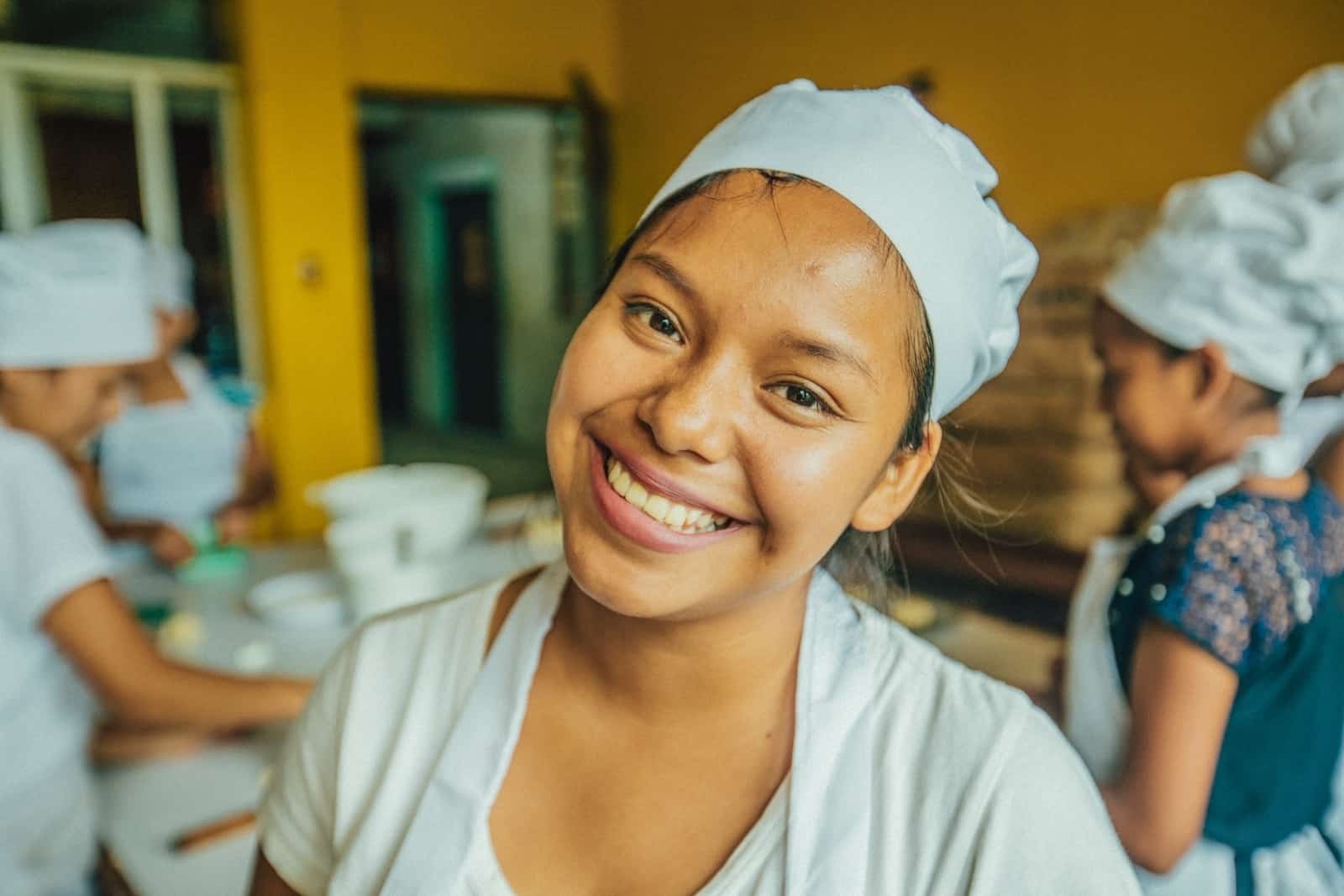
Connie is a young woman from Camojá Grande, Guatemala, a village of about 5,000 people nestled in the mountains that border southern Mexico.
“I had a great childhood growing up. But I came from a modest family and we were often lacking financial resources,” says Connie.
In Connie’s community, most people only have informal employment, which lacks stability, fair pay and benefits. Many work on nearby plantations. But for the long days bending over crops, they make the equivalent of about $75 per month. That’s not enough to provide for a family, and it is one of the reasons why malnutrition is so rampant in Guatemala.
Though many people associate malnutrition with sub-Saharan Africa, Guatemala has one of the highest rates in the world. More than 4 out of every 10 children in Guatemala have stunted growth because of hunger. The rate is even higher in the rural communities where most people are of Mayan descent. Communities like Connie’s.
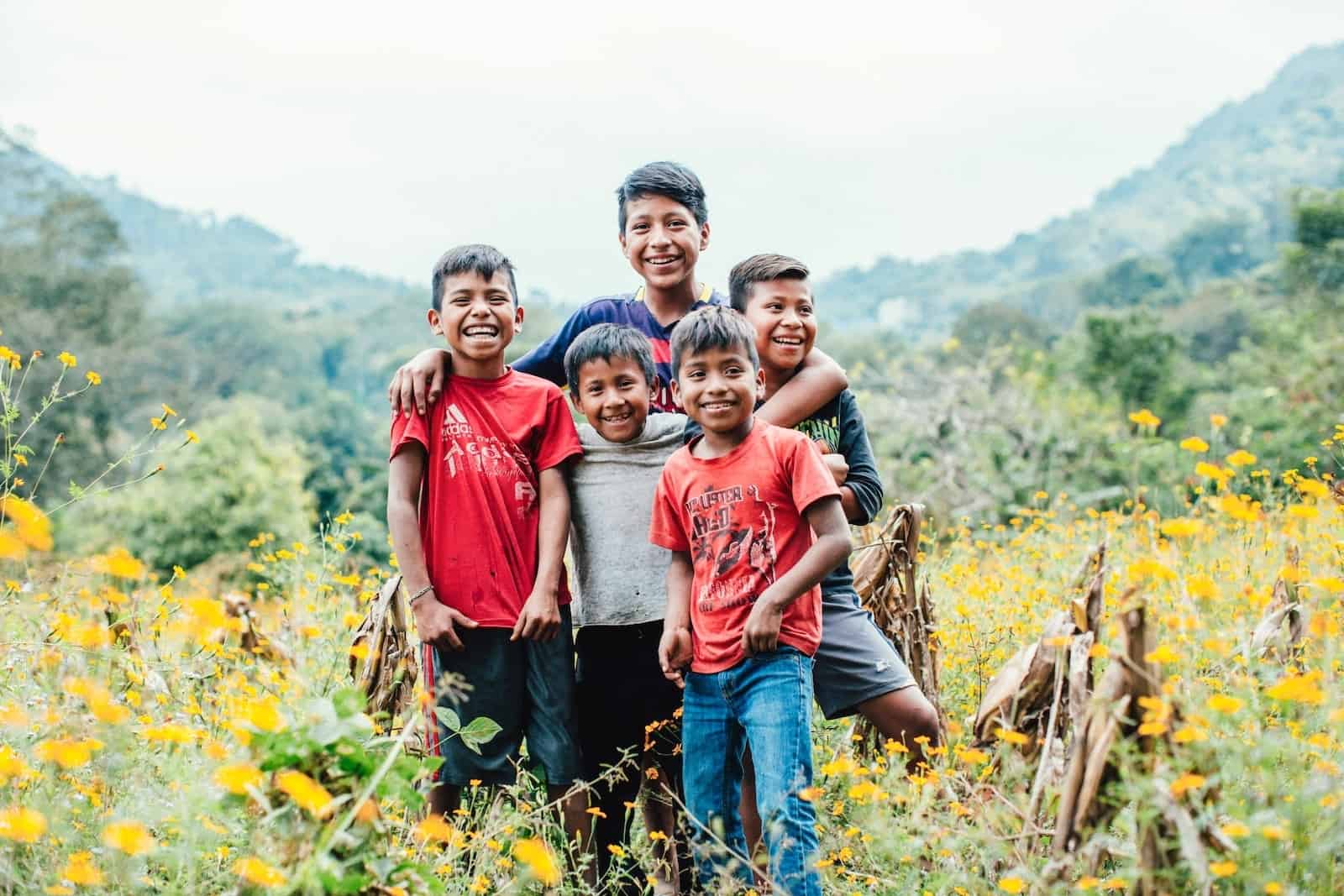
Boys from Camojá Grande play outside of the local church.
“My dad, he works a lot, but here in Guatemala he doesn’t earn a lot of money, and work can be hard to find,” says Connie.
In this context, many young people drop out of school to begin working in their adolescence. They must start contributing to the family’s income.
What makes it even more complicated is that in Guatemala, secondary education isn’t always available to everyone. Some towns may not have secondary schools. Or there may only be a limited number of spots in public schools. Those who can’t afford private school are forced to drop out.
In situations like these where the poverty is deep, one powerful way to respond is with vocational training.
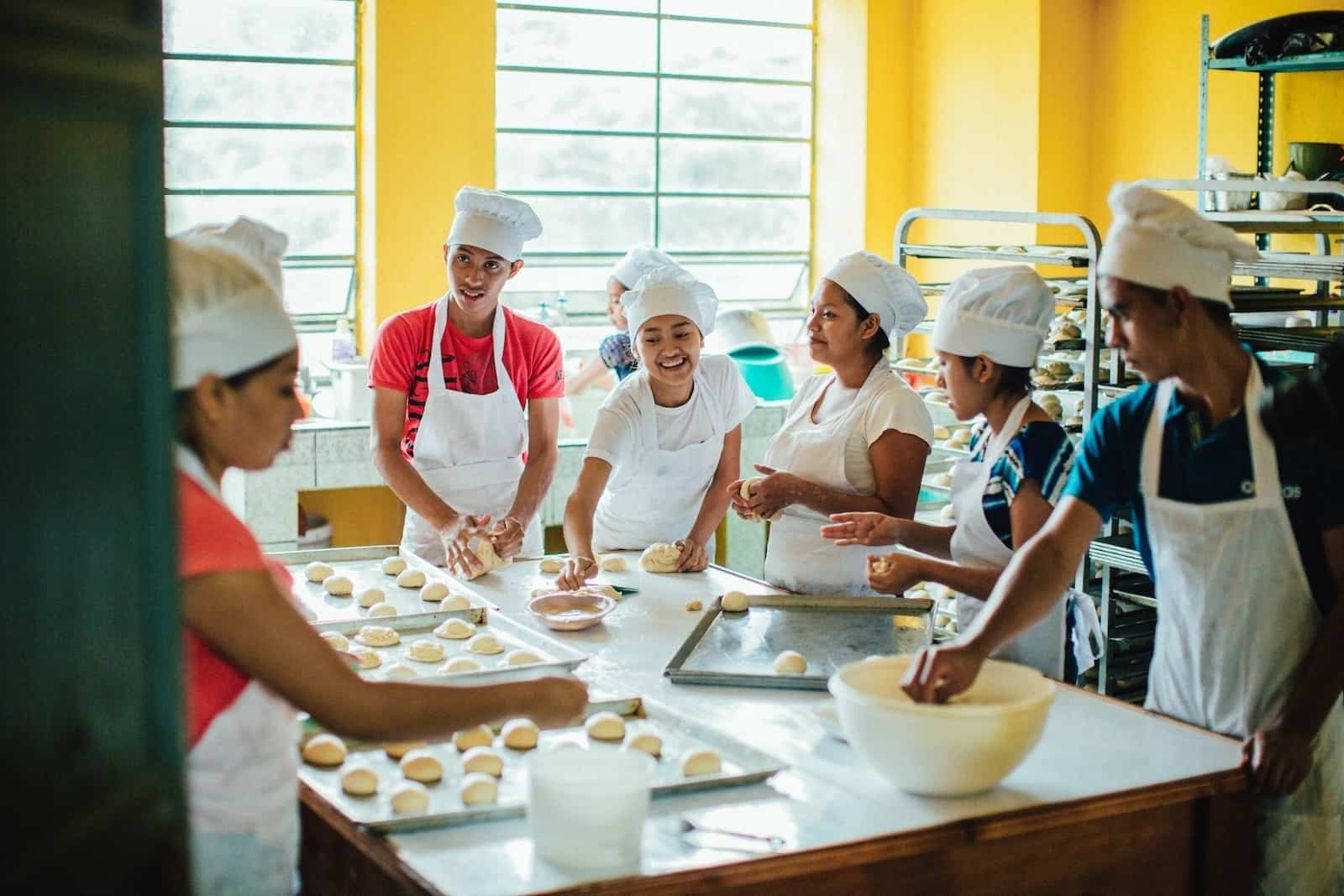
In Guatemala, we partner with organizations like INTECAP, a government entity that provides vocational training such as hairdressing, electronics and mechanics. But INTECAP is only available in major towns. In the more remote areas, like Camojá Grande, where Connie lives, Compassion works with the local church to provide appropriate and applicable vocational training.
The Mi Redentor Vive Student Center where Connie graduated has been providing vocational training in baking for years, and it’s having huge impacts on the community.
Baking is helping Connie to rise out of poverty.
This vocational training bakery is providing many benefits:
- Adolescents are learning a skill that can help them gain employment.
- Moms are earning money selling bread.
- Students are receiving scholarships through the bakery’s profits to continue school.
- Standout students like Connie have jobs at the bakery.
From moms to students to graduates, this vocational training center is a layered response to help people overcome the poverty of this region.
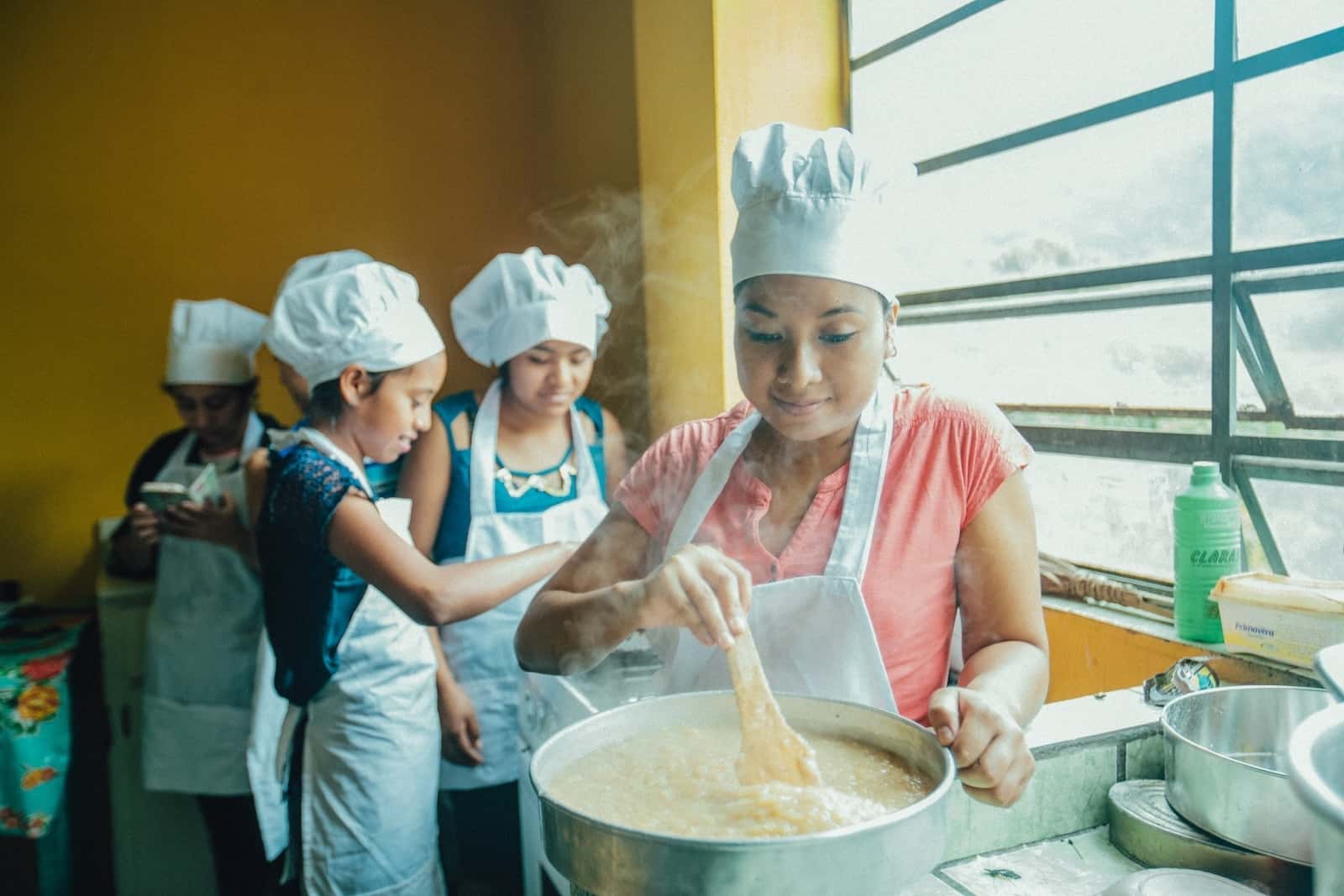
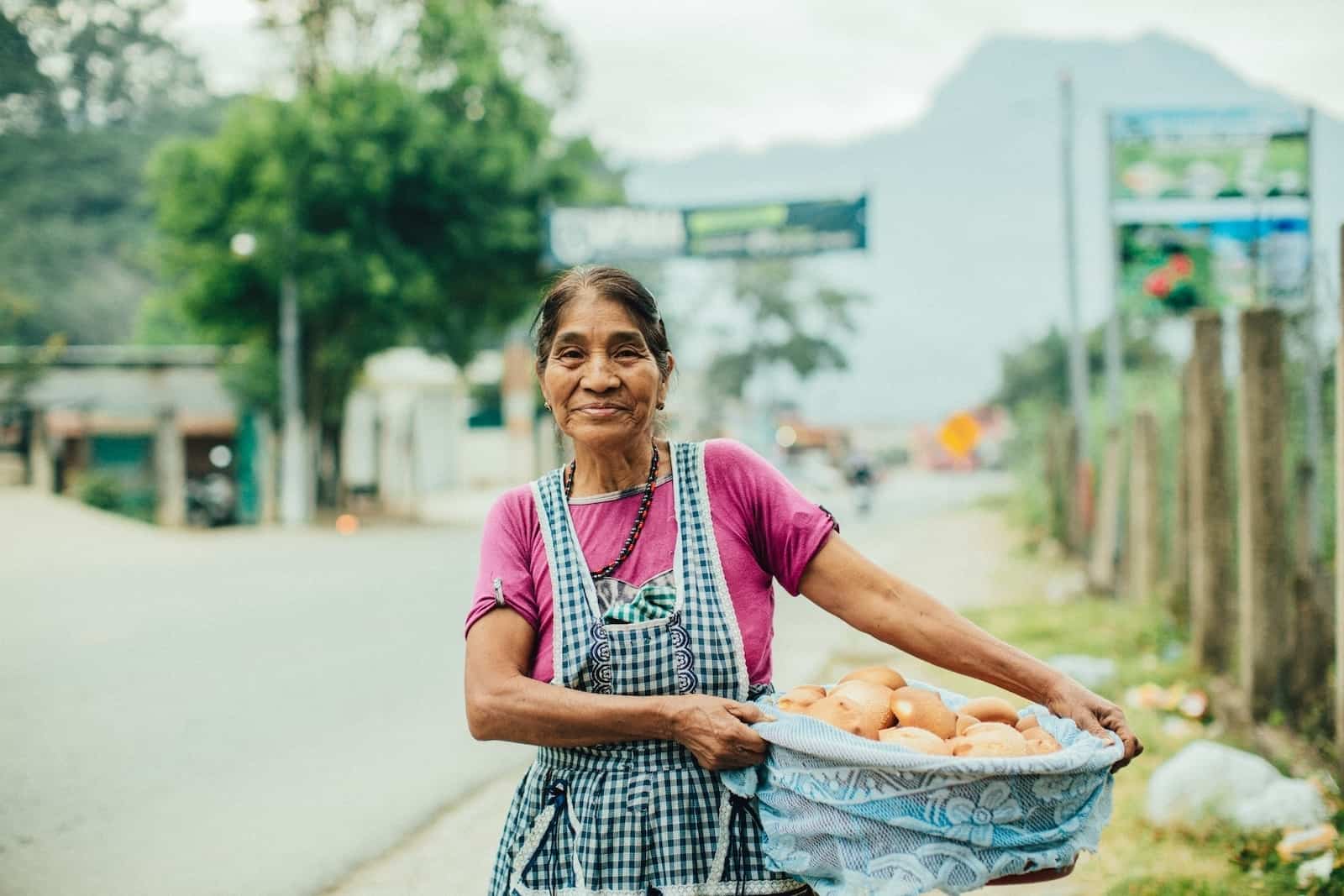
Connie has been working in the bakery for three years. She was chosen because of her hard work and dedication while attending the training herself. Connie loves being able to spread opportunities to more young people.
“I’ve seen lots of kids who can’t reach their goals because they lack resources. There are lots of young people just like me, and sometimes I thought I was stuck,” says Connie. “But Compassion works hard to give scholarships to the young people so that they can afford to live, so that they can help themselves and help their families, and that they might reach their goals. That they can see a new future and have new hope.”
When you sponsor a child, you are helping to keep these goals and dreams alive! Though you might not get to see the great need of the child you sponsor in person, you can look at communities like Connie’s, where the poverty is so deep, and see the opportunities to thrive that you are providing.
You are helping these young people prove that poverty doesn’t have to be the end of their story!
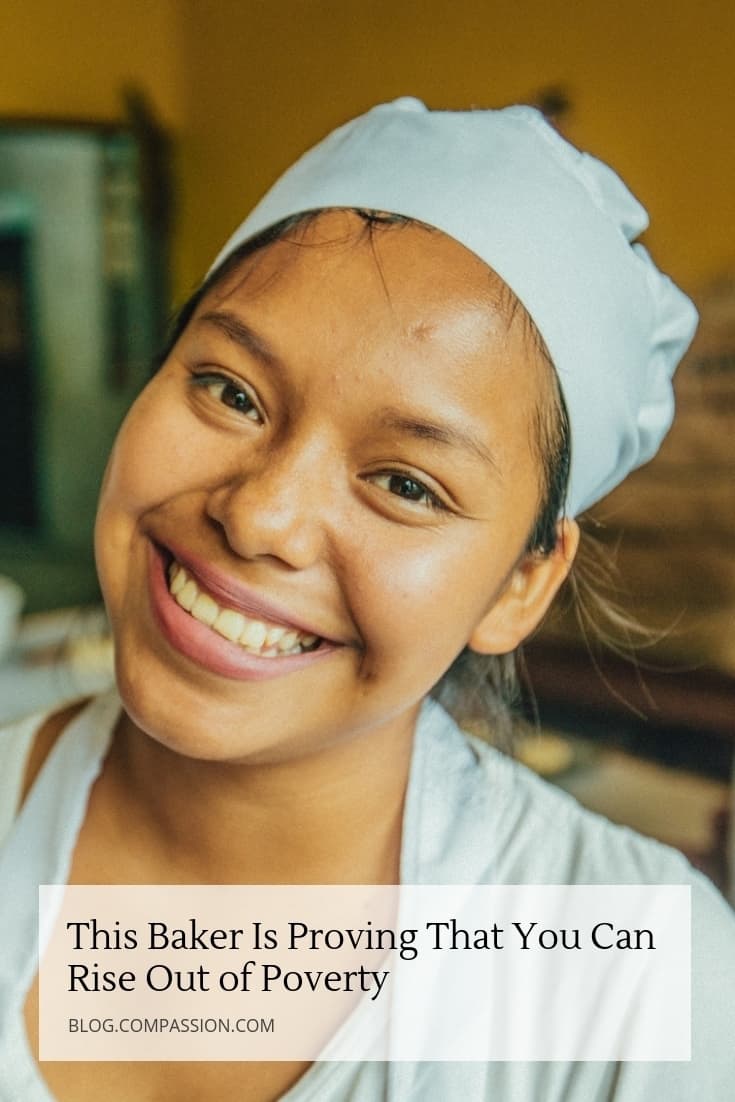

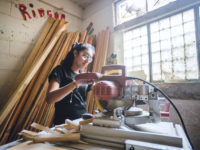




2 Comments |Add a comment
I love this story! I went to the LDP graduation of my sponsored boy in Colombia several years ago. At the time, his goal was to open a cafe some day. I recently got to see him again, while visiting two other kids, and he has just now opened a sandwich shop (in addition to working in a bakery)! So his dream is coming true, and I’m so proud of Him. Most of all, I’m thankful for God’s plan for his life, and that I have the privilege of knowing this very special young man. Your story is another one that I am eager to share with others! Thank you for partnering with God and Compassion, too, in this very special way!
What a wonderful story! Thank you Compassion, for your heart for the children and their families. God bless you, Connie!